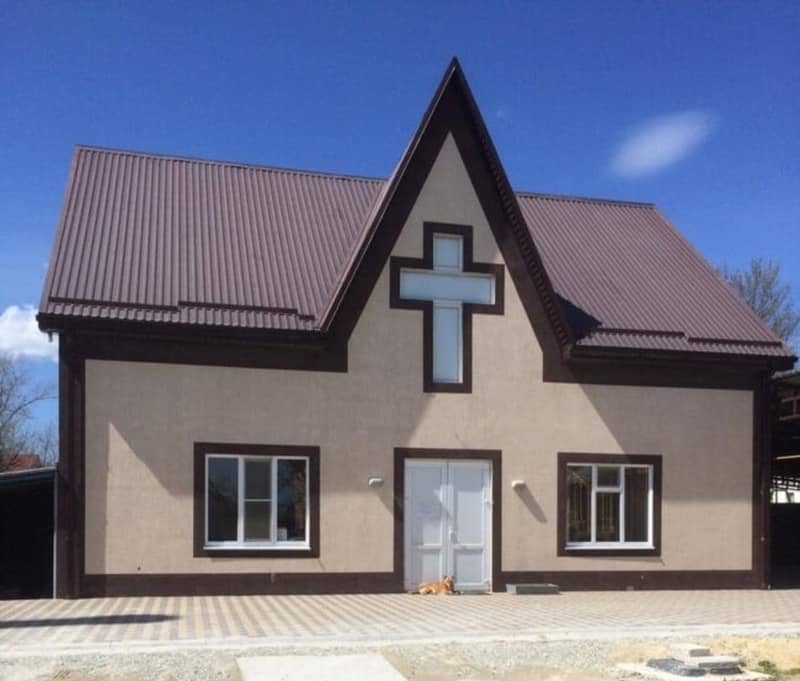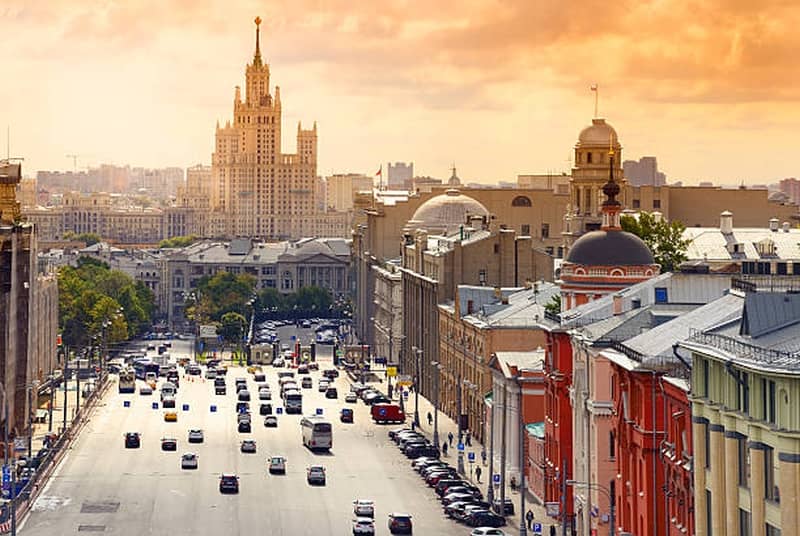Evangelism (proselytizing – sharing the gospel) is generally banned in all Communist and Islamic countries. This is obvious, as officially Communist states are atheist, and Islamic countries are strictly Muslim.
However, lesser-known is that although Christianity is fully legal in both Russia and Japan and protected by laws on freedom of religion, new laws in recent years have made it illegal in Russia for Christians to share the gospel even in private homes. This may be surprising to Christians who consider Russia to be a Christian country.
In Japan there is a law banning sharing the gospel with children or bringing your children to church if they don’t want to go. Japan is also historically a difficult country to evangelize, because followers of the ubiquitous ancestor-worship traditions of Shintoism in Japan find it hard to reconcile with the beliefs of Christianity.
Christianity in Japan
Japan has been called “the most difficult country to evangelize”. Japan is traditionally a pagan culture, largely adhering to elements of Shintoism and ancestor worship. Today, only 1% of Japan is Christian, making it one of the least-Christian countries.
The history of Christianity in Japan is brutal. in the 1500s, Christianity spread to Japan and was rapidly converting the population. In Nagasaki, one of the two cities in Japan obliterated by the “atomic bomb” by the Americans in WW2, there were upwards of 500,000 Christians in Nagasaki.
But due to alleged uprisings, the Tokugawa Shogunate government declared Christianity strictly illegal in Japan in 1614. Leading up to this, 26 Christian missionaries had been executed by crucifixion in Nagasaki in the mid-1500s.
“Foreign missionaries were quickly expelled from the country, those who refused to leave were arrested, killed, or forced to renounce the religion.”
By 1620, the government decided that outlawing the religion and executing its adherents was not enough, so they mandated that all citizens must trample a crucifix to publicly deny Christ.
Those who did this act, called “trampling the fumie” were allowed to return home, but those who did not were horrifically tortured, nursed back to health, and tortured again to break their resolve.
An estimated 2,000 Christians died as martyrs refusing to denounce their faith. The torture was horrific:
“They would sometimes torture them by hanging them over a pit filled with excrement. They would cut slits around their temples to release [the pressure] so they wouldn’t die.”
Nevertheless, in spite of such extreme persecution, and despite Japan having one of the smallest percentage of Christians in the world, Nagasaki is still the area in Japan today with the most Christians, although they are few. There are only 1 million Christians in Japan out of the 122 million population of the country.

Japanese forced to recant their Christian faith in the
17th century by “trampling the fumie”.
A resurgence against Christianity returned during World War 2, when “public worship was restricted and some Christians were once again imprisoned.” But Billy Graham’s 1967 Tokyo Crusade renewed interest in Christianity, and by 1968 the Japan Evangelical Association (JEA) was formed.
Today Japan has a law that guarantees freedom of religion in Japan, so that it is legal to be a Christian in Japan and is a protected right by law. However, there is another law in Japan called the “Child Abuse Prevention Act” in which “forcing participation in religious activities, including proselytization” can be considered “psychological abuse towards children”.
So this means that it is technically illegal to share the gospel with children in Japan, including your own, or to make them go to church.
Christianity in Russia
In the Soviet Union, like Communist China today, all religion was strictly banned, punishable by death. But just before the fall of Communism in Russia in 1990, Christianity made a resurgence in Russia.
By 1997, a new law was passed in Russia this accepted Christianity, Islam, Buddhism, and Judaism as traditional religions in Russia. This law was called, “On Freedom of Conscience and Religious Associations”.
Today, over 70% of Russia is Christian, most considering themselves to be Russian Orthodox. Because of this, the Russian Orthodox Church could be called the official religion of Russia, and is able to decide which other religions can be officially registered.
But only religions was are considered “traditional” and officially registered with the Russian state are allowed to have their own places of worship. “Non-traditional” religions in Russia may be in violation of federal law and will be restricted from practicing in Russia, or even criminalized.
This accelerated in 2016, with the passing of the “Yarovaya Laws” named after the main sponsor Irina Yarovaya, further restricted freedom of religion as part of an “anti-terrorism” set of laws.
These laws have an effect against Protestant sects of Christianity as well as “Christian” cults like Mormons, Jehovah’s Witness. Irina Yarovaya, who sponsored the laws, was the same woman who sponsored the bill in 2014 to ban Holocaust denial in Russia.
The 2016 law “restricts missionary work to specially designated areas”, and includes “laws against sharing faith in homes, online, or anywhere but recognized church buildings”, which took effect on July 20, 2016.
Because of this law which bans sharing the gospel with people outside or even in others’ private homes, LDS (Mormons) have pulled out of Russia. Jehovah’s Witnesses were later completely banned from Russia in 2017.

Baptist church in Russia whose pastor was arrested in 2019.
In 2018, 159 religious individuals and organizations were prosecuted, of which 50 were Pentecostals and 39 were Baptists. In January 2019, two Baptists were punished for discussing their faith at a bus stop. By mid-2019, Russian authorities interrupted a Baptist service and charged the pastor, 71-year old Yury Korniyenko, with illegal missionary activity.
“While freedom of religion is constitutionally guaranteed in Russia, the relevant legislation names Orthodox Christianity, Islam, Judaism, and Buddhism as the country’s four traditional, protected religions. Others with smaller presences in Russia, including denominations like Baptists, have been subjected to increased scrutiny in recent years.”
So while Russia is a traditionally Orthodox Christian country which bans LGBT and upholds traditional Christian values, the bans against free speech and freedom of religion even against evangelical Christians in Russia might be more than Americans expect.
Sources:
1. The Japanese Christians forced to trample on Christ | BBC
2. Why Japan Wants Its Past Persecution of Christians to Be World Renowned | CT
3. 2022 Report on International Religious Freedom: Japan | State.gov
4. Evangelicalism in Japan | Direction Journal
5. From Prohibition to Toleration: Japanese Government Views regarding Christianity, 1854-73 | JSTOR
6. New law in Japan takes aim at Unification Church’s fundraising tactics | PBS
7. Russia passes ‘Big Brother’ anti-terror laws | The Guardian
8. Russia’s Newest Law: No Evangelizing Outside of Church | CT
9. Russian Evangelicals Penalized Most Under Anti-Evangelism Law | CT
10. Russia Charges Baptist Pastor In A Sign That Its Religious Clampdown | Rferl
11. [LDS] Church says all American Latter-day Saint ‘volunteers’ have left Russia
12. Christians in Russia Under Attack From Putin’s Law Banning Evangelism Outside of Churches | Christian Post
13. Russian lawmakers approve bill making Holocaust denial illegal | JTA



